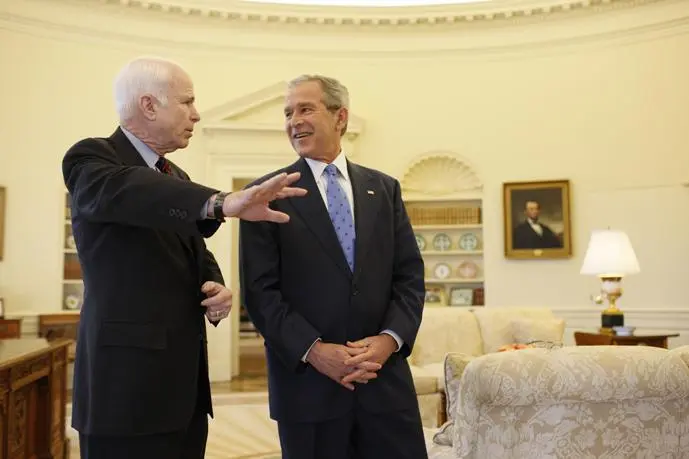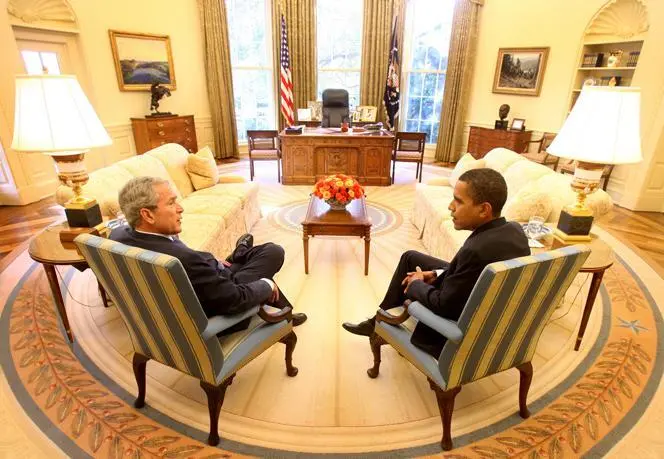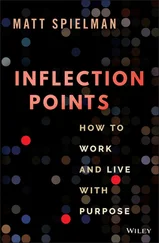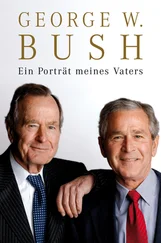My preference had been John McCain. I believed he was better prepared to assume the Oval Office amid a global war and financial crisis. I didn’t campaign for him, in part because I was busy with the economic situation, but mostly because he didn’t ask. I understood he had to establish his independence. I also suspected he was worried about the polls. I thought it looked defensive for John to distance himself from me. I was confident I could have helped him make his case. But the decision was his. I was disappointed I couldn’t do more to help him.

With John McCain. White House/Eric Draper
The economy wasn’t the only factor working against the Republican candidate. Like Dad in 1992 and Bob Dole in 1996, John McCain was on the wrong side of generational politics. At seventy-two, he was a decade older than I was and one of the oldest presidential nominees ever. Electing him would have meant skipping back a generation. By contrast, forty-seven-year-old Barack Obama represented a generational step forward. He had tremendous appeal to voters under fifty and ran a smart, disciplined, high-tech campaign to get his young supporters to the polls.
As an Obama win looked increasingly likely, I started to think more about what it would mean for an African American to win the presidency. I got an unexpected glimpse a few days before the election. An African American member of the White House residence staff brought his twin sons, age six, to the Oval Office for a farewell photo. One glanced up around the room and blurted out, “Where’s Barack Obama?”
“He’s not here yet,” I deadpanned.
On election night, I was moved by images of black men and women crying on TV. More than one said, “I never thought I would live to see this day.”
I called the president-elect to congratulate him. I also called John McCain to say he was a good man who’d given the race his best shot. Both were gracious. I told the president-elect I looked forward to welcoming him to the White House.
When I hung up the phone, I said a prayer that all would be well during my successor’s time. I thought about one of my favorite presidential quotes, from a letter John Adams wrote to his wife, Abigail: “I pray Heaven to bestow the best blessings on this house and all that shall hereafter inhabit it. May none but honest and wise men ever rule under this roof.” His words are carved into the mantel above the fireplace of the State Dining Room.

Months before the 2008 election, I had decided to make it a priority to conduct a thorough, organized transition. The first change of power since 9/11 would be a period of vulnerability, and I felt a responsibility to give my successor the courtesy of a smooth entry into the White House. The transition was overseen by Josh Bolten and one of his deputies, my talented former personal aide Blake Gottesman. They made sure the president-elect and his team received briefings, access to senior members of the administration, and office space in their new departments.
Part of the transition involved economic policy. The financial crisis brought one final decision point: What to do about the reeling American auto industry? The Big Three firms of Ford, Chrysler, and General Motors had been experiencing problems for years. Decades of poor management decisions had saddled automakers with enormous health-care and pension costs. They had been slow to recognize changes in the market. As a result, they had been outcompeted by foreign manufacturers in product and price.
When the economy took a hit, auto sales dropped. Then the freeze in the credit markets stopped almost all car loans. Auto company stocks were battered in the stock market collapse of September and October. Their cash balances dwindled to dangerously low levels. They had little hope of raising new funds in the private markets.
In the fall of 2008, GM CEO Rick Wagoner started pressing for federal help. He warned that GM would fail, and then the other automakers would follow. I didn’t think it was a coincidence that the warnings about bankruptcy came right before the upcoming elections. I refused to make a decision on the auto industry until after the vote.
Six days after the election, I met with President-elect Obama in the Oval Office. Barack was gracious and confident. It seemed he felt the same sense of wonderment I had eight years earlier when Bill Clinton welcomed me to the Oval Office as president-elect. I could also see the sense of responsibility start to envelop him. He asked questions about how I structured my day and organized my staff. We talked about foreign policy, including America’s relationships with China, Saudi Arabia, and other major powers. We also discussed the economy, including the auto companies’ trouble.

With Barack Obama. White House/Eric Draper
Later that week, I sat down for a meeting with my economic team. “I told Barack Obama that I wouldn’t let the automakers fail,” I said. “I won’t dump this mess on him.”
I had opposed Jimmy Carter’s bailout of Chrysler in 1979 and believed strongly that government should stay out of the auto business. Yet the economy was extremely fragile, and my economic advisers had warned that the immediate bankruptcy of the Big Three could cost more than a million jobs, decrease tax revenues by $150 billion, and set back America’s GDP by hundreds of billions of dollars.
Congress had passed a bill offering $25 billion in loans to the auto companies in exchange for making their fleets more fuel-efficient. I hoped we could convince Congress to release those loans immediately, so the companies could survive long enough to give the new president and his team time to address the situation.
My point man on the auto issue was Secretary of Commerce Carlos Gutierrez. Born in Cuba, Carlos had immigrated to Florida as a boy. His parents moved to Mexico, where Carlos took a job driving a delivery truck for Kellogg’s. Twenty-four years later, Carlos became the youngest CEO in that company’s history and the only Latino CEO of a Fortune 500 company. He joined my administration in 2005 and did an outstanding job promoting trade, defending tax relief, and advocating for freedom in Cuba.
Carlos and the team pushed Congress hard to release the auto loans. We made progress in the House, but the Senate wouldn’t budge. The only option left was to loan money from TARP. I told the team I wanted to use the loans as an opportunity to insist that the automakers develop viable business plans. Under the loans’ stringent terms, the companies would have until April 2009 to become fiscally viable and self-sustaining by restructuring their operations, renegotiating labor contracts, and reaching new agreements with bondholders. If they could not meet all those conditions, the loans would be immediately called, forcing bankruptcy.
The deal drew criticism from both sides of the aisle. The head of the autoworkers’ union complained that the conditions were too harsh. Grover Norquist, an influential advocate for fiscal conservatism, wrote me a public letter. It read, “Dear President Bush: No.”
Nobody was more frustrated than I was. While the restrictive short-term loans were better than an outright bailout, it was frustrating to have the automakers’ rescue be my last major economic decision. But with the market not yet functioning, I had to safeguard American workers and families from a widespread collapse. I also had my successor in mind. I decided to treat him the way I would like to have been treated if I were in his position.
Читать дальше














